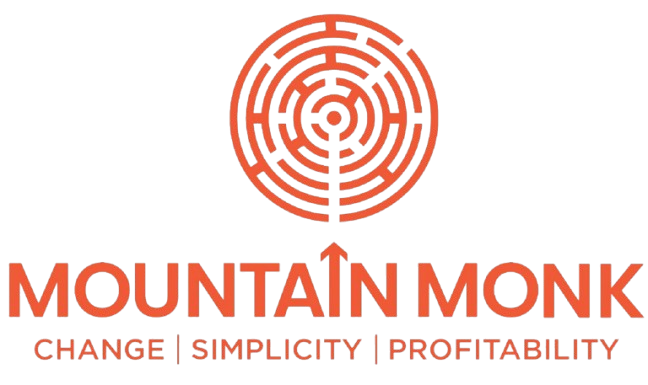Introduction: Strategy Without Insight Is Just Guesswork
Businesses today are under more pressure than ever to scale, disrupt, and lead. In this race, many jump into expansion, product launches, or new market entry with a detailed strategy — but no factual grounding.
While vision and conviction are vital, what separates long-term winners from momentary noise is a deep, data-backed understanding of their industry, competitors, and customers.
At Mountain Monk Consulting, we believe that industry research isn’t a support function; it’s a strategic foundation. Without it, even the most well-funded or well-intentioned businesses risk building castles on sand.
This blog explores why business market research isn’t just a box to check. It’s the compass for growth.
The Common Misstep: Moving Without Mapping
Over the last decade, we’ve worked with businesses across industries: manufacturing, retail, technology, FMCG, renewable energy, and beyond. And regardless of their size or legacy, we often find one recurring blind spot:
They start building the strategy before knowing what the market really looks like.
Here are some common pitfalls we’ve observed:
- Expanding to a new geography because a competitor did it.
- Launching a new vertical based on founder instinct.
- Pricing products without benchmarking against real customer willingness to pay.
- Assuming product-market fit without customer behavior data.
The result?
- Resources get misallocated.
- Teams lose confidence due to repeated failures.
- Leadership shifts into reactive mode, constantly putting out fires instead of building sustainably.
Industry research changes that. It gives businesses a clear picture of where they are, where the opportunities lie, and how to pursue them efficiently.
What Does Industry Research Actually Mean?
Contrary to popular belief, industry research is not limited to scanning a few market reports or conducting a customer survey. True business market research is multi-dimensional and designed to turn intelligence into strategy.
At Mountain Monk Consulting, our approach to industry research covers the following:
1. Territory-Level Demand Mapping
We analyze potential across cities, regions, and customer clusters. Where is the demand today? Where is it evolving? What regions are underserved?
2. Competitor Intelligence
We go beyond pricing comparisons to understand business models, sales tactics, distributor networks, service gaps, and more.
3. Consumer Behavior Analysis
What really influences purchasing decisions? How do preferences vary by income group, location, or product category?
4. Channel Feasibility Studies
Which route-to-market is actually viable? Will direct-to-consumer work better than a B2B play? Is retail distribution feasible in Tier 2 cities?
5. Category Trend Analysis
We study how the industry is evolving. Are newer formats or technology disruptions impacting traditional players?
6. White Space Identification
Where is the opportunity to stand out? Whether it’s a pricing gap, service innovation, or an underserved customer group—we find spaces competitors have missed.
In short, business market research is the step that connects your ambition with real-world opportunity.
Why Industry Research Comes Before Strategy
Let’s put it simply:
Strategy is how you win. Research is how you know what game you’re playing.
Building a strategy before industry research is like designing a bridge before surveying the river.
Here’s how our clients have benefitted when research came first:
1. Market Prioritization Based on Demand, Not Assumption
One client in the retail building materials segment was convinced Delhi NCR was the best launch market. Our data showed smaller Tier 2 cities had higher per-store sales potential, lower competition, and stronger retailer loyalty. We redirected their launch and helped them gain 2x the revenue in half the GTM spend.
2. Clearer Competitive Positioning
A fast-scaling startup in the D2C segment was struggling with declining CAC (Customer Acquisition Cost). Our research identified that their messaging was too similar to legacy brands. We built a positioning strategy rooted in customer insight, not internal belief, and their conversion rate jumped 22% within a quarter.
3. Stronger, Realistic GTM Plans
We’ve helped brands avoid aggressive launch timelines and unrealistic revenue projections by first grounding expectations in real numbers: actual footfall, price elasticity, and distributor reach instead of wishful thinking.
4. Alignment Across Leadership
With robust research backing every strategic decision, internal misalignment reduces. Teams across sales, marketing, and finance begin working with shared truths—accelerating decision-making and reducing resistance.
Real Example: A Case of Expansion Done Right
Let’s take an anonymized but real scenario:
A regional solar EPC player was poised to expand from one district to three others. Their initial idea was to replicate their current setup. But with MMC’s territory research, we found:
- District A had high potential but weak distributor networks.
- District B was saturated and over-serviced.
- District C, while less glamorous, had rising inquiry volumes and the highest unmet demand.
We designed a phased rollout, beginning with District C, tailoring pricing to local sensitivity and onboarding local influencers for faster trust-building. Within six months, their revenue from new districts outpaced core market sales.
This wasn’t luck. It was research-backed execution.
What You Gain from MMC’s Industry Research
With Mountain Monk, a top consultancy firm in India, your research doesn’t stop at insights—it becomes an actionable direction.
Here’s what we deliver:
- Heatmaps and Territory Scoring Models
- Competitor Deep Dives with business implications
- Consumer Personas and motivation maps
- Channel Viability Reports to assess expansion strategies
- Industry Benchmarks for pricing, product fit, and growth
And most importantly, we translate this into your next step: a strategic roadmap that is grounded, customized, and scalable.
Conclusion: Facts First. Strategy Follows.
In a world where every business is trying to move fast, the question isn’t how to scale. It’s where and why you should.
Industry research doesn’t just reduce risk.
It creates strategic clarity, aligns stakeholders, and ensures that every rupee you spend is building forward momentum, not correcting past mistakes.
Whether you’re launching a new product, entering a new market, or redesigning your distribution model, start with business market research.
At Mountain Monk Consulting, we’ve helped businesses turn intelligence into impact.
Let your next move be the right one based on facts, not faith.





